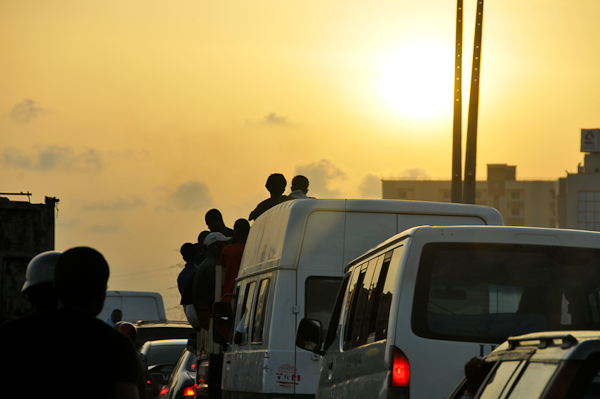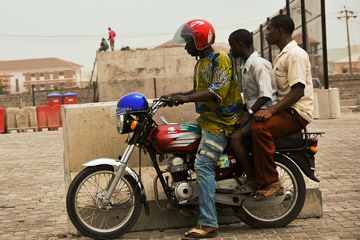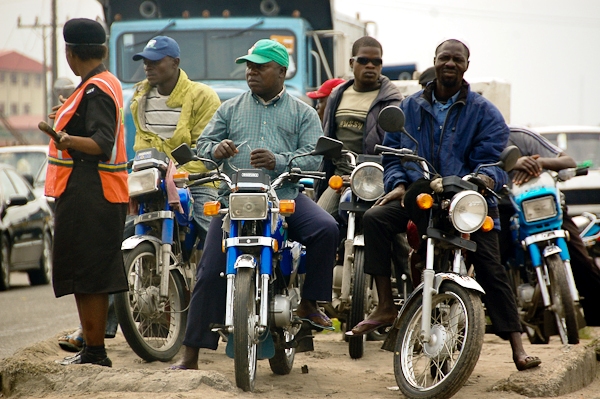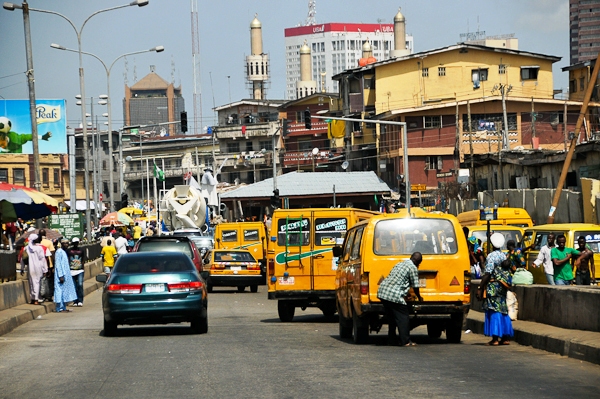
All photos by author.
Through loudspeakers connected to a van, a heavily synthesized voice belts out “Back to Sender, O! Back to Sender!”
These are the only English lyrics in the Muslim worship song he sings in Yoruba, a West African language. The once white rusty van is parked along the side of a one-way street yet traffic travels in both directions.


